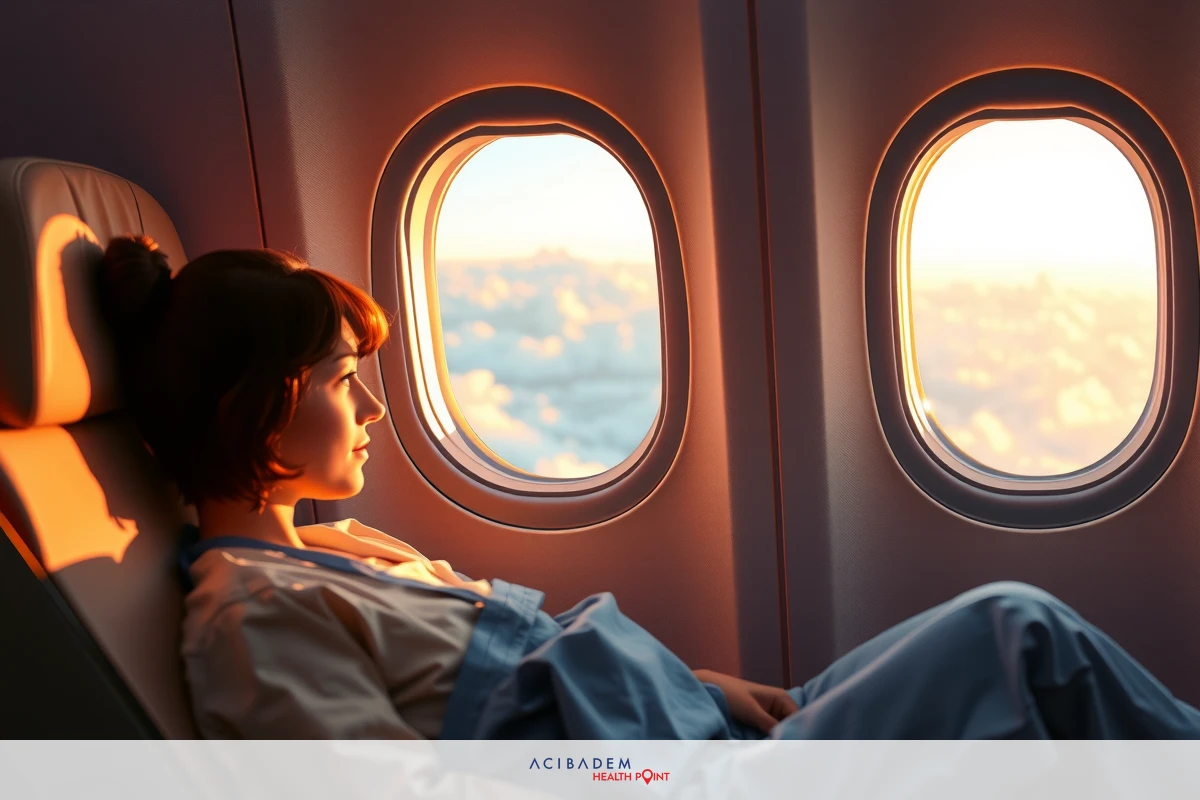Can You Fly on a Plane After Rhinoplasty?
Can You Fly on a Plane After Rhinoplasty? Rhinoplasty, the medical term for a nose job, often leaves patients with concerns about post-operative activities. Air travel is one such activity that arouses curiosity and apprehension alike. A common query posed by many is regarding the safety of flying after rhinoplasty.
Post-operative guidelines vary widely depending on individual health conditions and specifics of the surgery performed. Nevertheless, certain general recommendations apply to most cases. Navigating through these guidelines can be as complex as navigating an airport terminal.
While all this may seem overwhelming at first glance, clarity will emerge from confusion once you familiarize yourself with the nuances involved in air travel following rhinoplasty. From understanding timeframes to taking necessary precautions – every bit of knowledge contributes to a safe and comfortable journey back home or towards your next adventure!
When Can I Fly After Rhinoplasty?
The time that needs to elapse before one can consider flying after rhinoplasty is often a subject of much debate and speculation. The general consensus among medical professionals, however, leans towards the safer side – recommending patients to wait at least a week following surgery. This waiting period allows your body enough time to initiate the healing process following this significant surgical intervention.
Allowing your body to rest and recuperate from the rigors of rhinoplasty is essential before embarking on air travel. Flying exposes you not only to physical exertion but also changes in atmospheric pressure which could potentially exacerbate swelling or bleeding in post-operative patients. It’s equally important during this period to pay attention and adhere meticulously to all post-operative precautions laid down by your doctor. These measures will ensure that once you’re onboard an aircraft, your journey remains free from discomfort or health scares.
Despite these broad guidelines, it’s imperative for each individual considering airplane travel after nose job surgery, to consult with their surgeon directly regarding safe timelines for air travel post-surgery. Factors such as personal health condition prior surgery or any complications encountered during surgery may call for extended periods of rest before undertaking long journeys involving air travel. Thus while planning flights subsequent to undergoing rhinoplasty, make sure you factor in adequate buffer time between the date of your operation and proposed day of travel.
Can You Fly on a Plane After Rhinoplasty? Precautions for Flying After Rhinoplasty
Can You Fly on a Plane After Rhinoplasty? When you’ve decided to fly after undergoing a rhinoplasty procedure, taking necessary precautions can make your journey smoother. It’s not just about abiding by the recommended post-operative timeline; it also involves ensuring that you take care of your physical wellbeing during the flight.
- Stay Hydrated: Air travel can be dehydrating due to low humidity levels in airplane cabins. Remember to drink plenty of fluids before and during the flight.
- Avoid Alcohol: While tempting, alcohol can exacerbate dehydration and increase swelling which is not ideal following surgery like rhinoplasty.
- Keep Medication Handy: Always keep any prescribed medication within easy reach during the flight in case you experience discomfort or pain.
- Use a Neck Pillow: A neck pillow provides support and helps avoid accidental contact with other passengers or objects that might cause harm to your healing nose.
- Avoid Heavy Lifting: Lifting heavy luggage could strain your body causing undue pressure on surgical

The image shows a person lying down in a seats inside an airplane. The setting appears to be the cabin of a commercial jet, indicated by the airplane seats and windows around them. sites such as those from a recent rhinoplasty operation.
- Move Around When Possible: Short walks around the cabin when safe will help promote circulation reducing chances of blood clot formation – an important postoperative precaution.
- Follow Your Doctor’s Advice : Every individual may have unique needs based on their health condition and specifics of their surgery, so adhere strictly to instructions given by your surgeon regarding air travel after nose job procedure.
By adhering meticulously to these airplane travel precautions along with other prescribed post-operative care measures, one can ensure a comfortable and uneventful journey even soon after undergoing complex procedures like rhinoplasty!
Tips for Comfortable Air Travel After Rhinoplasty
The prospect of flying after rhinoplasty can seem daunting. However, with a few helpful tips, the journey can be made much more comfortable and stress-free. Remember that a well-planned trip combined with adherence to post-operative precautions is the key to a smooth flight.
- Choose Aisle Seats: An aisle seat gives you the liberty to stand up and move around without disturbing other passengers promoting better circulation.
- Use Saline Spray: Regular use of saline nasal sprays on flights can help keep your nasal passages moist and relieve congestion.
- Avoid Salt: Consuming salty foods before or during your flight may lead to fluid retention causing increased swelling.
- Elevate Your Head During Sleep: If your flight involves sleeping hours, try elevating your head using extra pillows provided in-flight which assists in minimizing swelling during flight.
- Stay Calm : Anxiety could add unnecessary stress putting strain on your body slowing down healing process post-surgery like rhinoplasty.
By implementing these tips along with necessary precautions suggested by doctors, we assure you’ll have an uneventful airplane travel experience even after undergoing major procedures such as nose job surgery!
Frequently Asked Questions
Can I fly immediately after rhinoplasty surgery?
No, it's generally recommended to wait at least a week before you consider air travel. This time allows your body to initiate the healing process and reduces risks associated with changes in atmospheric pressure during flights.
What can I do to reduce swelling during my flight after rhinoplasty?
Keeping yourself hydrated, avoiding salty foods that may lead to fluid retention, using saline nasal sprays regularly and elevating your head while sleeping on the plane are some ways of minimizing swelling during flight.
Is it safe for me to lift luggage onto overhead bins after undergoing nose job surgery?
It is better not to engage in heavy lifting post-surgery as this could strain your body causing undue pressure on surgical sites. You might want to consider asking for assistance or packing light enough so that placing luggage into overhead compartments doesn't cause discomfort or risk injury.
Should I consult my surgeon before planning air travel following rhinoplasty procedure?
Absolutely! Your health condition prior surgery and any complications encountered during operation could impact when it would be safe for you personally to undertake long journeys involving air travels. Always discuss such plans with your doctor ahead of making arrangements.











